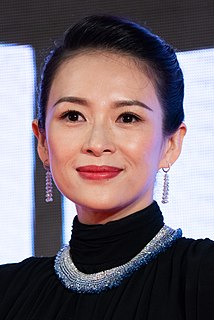A Quote by Zhang Ziyi
There's nothing in Chinese culture that is an equivalent of the geisha. It's so different, so special to Japan.
Quote Topics
Related Quotes
At the beginning of my career as a writer, I felt I knew nothing of Chinese culture. I was writing about emotional confusion with my mother related to our different beliefs. Hers was based in family history, which I didn't know anything about. I always felt hesitant in talking about Chinese culture and American culture.

































